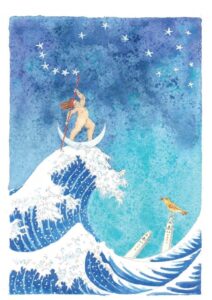RISK, CRISIS, INVENTION
28 May – 09 June 2013
Presentation| Program | Workshops| Invited Artists
 Look at Transit 7 video (1h03′)
Look at Transit 7 video (1h03′)
Some people say that the Chinese ideogram for ‘crisis’ is composed of two signs: ‘danger’ and ‘opportunity’. I am not interested in discussing whether this is true or not, but in seeing beyond the contradictory aspects of experiences that are generally considered to be negative in order to find inspiration for alternative ways of thinking and producing as women who work in theatre. This is why I have linked the word crisis with risk and invention, with an emphasis on the need to change.
Nowadays crisis is a frequently used word; often followed by unemployment, bankruptcy, cuts and national debt. The word usually refers to economic crisis, but also to a political and moral crisis, a crisis of values and a loss of belief in the future. Young people, angry and indignant, are born in an era that does not seem to offer opportunities.
Crisis is also a common word in conversations about theatre. Not only because of the difficulty of selling performances and earning a living, but also because theatre is an artistic form that requires physical presence and an interaction with a relatively limited number of spectators, in an era that is increasingly concerned with virtual and technological communication and where numbers count more than individual human beings.
In the making of theatre, crisis, risk and invention are essential steps in any creative process which demands rigour and engagement. When struggling to make new work and overcome the clichés of our experience, in search of potential and unexpected directions, we all go through periods of crisis: questions, doubts, feelings of powerlessness and even paralysis, which have to be resolved in order to move on.
In my vocal work as an actress, problems and difficulties have provoked the imperative creative stimulus to find personal solutions. In my work as a director the moment when I believe the performance will never function is always the turning point which then reveals the hidden meaning of the work. Within The Magdalena Project, refusing the status quo, hierarchies, male supremacy and organisation has helped us find alternative horizontal networking structures and artistic challenges. Overcoming a crisis, taking risks and inventing are not only ways of remaining alive, but also of rediscovering every day the meaning theatre work has for us. We search for forms that satisfy our sense of rebellion and for ways of passing on knowledge and experience that defy traditional academic structures.
Various women and performances have been invited to the Transit 7 Festival in order to share their moments of crisis and the strategies they use to overcome them. The performances, work demonstrations, workshops and talks will give examples of how the urgent need to react to the injustice that surrounds us is transformed into a practice of assuming precarious positions and of developing forms which express our revolt. Fighting isolation and finding support in a network of women who make theatre in all corners of the world is one way to do so. We will share techniques and work methods in a landscape of theatrical gardens that allow space for sequoias, willows and mushrooms alike, and allow us to rediscover the desire to shape a possible future.
Julia Varley
